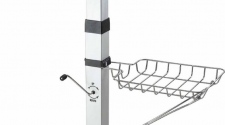A study by Torrent Freak back in the year 2013 revealed that there was a sharp rise in link removal requests and takedown notices by Google, which had increased by a whopping 75% compared to the previous year. This is also evidenced by the many SEO packages by search engine optimization firms that reflect the need to recover from such link removal services.
Over the year 2014, there were over 345 million requests received by Google, which cemented this 75% increase. These takedown requests, which targeted over 5 million URLs each, were all pointed towards three specific domains which are uploaded.net, rapidgator.net and 4shared.com. This indicated a massive copyright infringement.
Torrent Freak processed all their weekly reports and found that there were actually over 345 million copyright holders URLs submitted for the takedown, with the number being exactly 345,169,134. The good news is that a majority of these requests were honored and subsequently, the links removed from the search engine results on Google, according to Torrent Freak.
However, some of the requests submitted were not acted upon as they received a “no action” status from Google after it determined that the referred to URLs were not guilty of any copyright infringements. In some other cases, the links had already been removed meaning no further action was required from Google.
Who Raises These Requests?
Link removal requests are raised by individuals, or companies, which identify their copyrighted content being distributed online illegally. This may also be as a result of other entities copying, or using, such content on their websites to drive business.
In actual sense, it is plagiarism and piracy, and this is not supported by the leading search engines online. Therefore, such requests don’t take long to be honored. All that is needed is establishment of the ownership of the content among the disputing parties, which can be easily established based on who published the content first online, among other metrics.
Once this ownership is established, the defaulter is requested to remove the content from their site. They may honor this request, but if they don’t, Google goes ahead to remove the links from its search results.
Torrent Sites the Main Culprits
Unfortunately, most of these copyright infringements and accusations are common in torrents downloading sites. This is because people have a tendency of acquiring and then sharing such copyrighted content via such sites, while disregarding the copyrights. This presents quite a challenge because most people who use such sites are also more likely to share such content with others without giving credit to the original owner.
However, for plagiarism-based cases, this is easier to resolve. All that Google needs to do is de-index the site that has copied content and this will deter the website owner from copying content again in the future.
The Lesson
All said, the Torrent Freak report teaches us a few things about using disputed content online. It is wise to both ask for permission and offer royalties to the original product/content owner before using or sharing it, or simply buying the rights to publish and use such content as your own from the original owner. Bottom line, it is unethical to share or use other people’s work without their permission.












